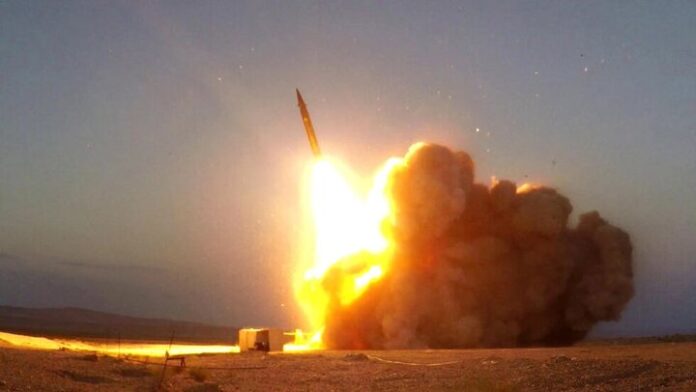Air raid sirens echoed throughout Israel late Saturday evening as a barrage of missiles and drones were launched from Iran, marking a sharp escalation in tensions between the two nations. Israeli officials stated that their advanced air defense systems, aided by the United States and other allies, successfully intercepted the majority of these threats, with more than 300 missiles and drones reported by the Israel Defense Forces spokesperson, Daniel Hagari. Despite the extensive attack, damage within Israeli territory was minimal, with a military base suffering minor harm and a 10-year-old girl severely injured by shrapnel.
This incident is part of a larger pattern of rising tensions in the Middle East, particularly following an airstrike on April 1st that targeted an Iranian consulate in Damascus, Syria, killing several high-ranking officers from Iran’s Revolutionary Guard. This recent volley of missiles into Israeli territory was Iran’s direct retaliation for the April 1st attack, marking its first-ever direct assault on Israel.
In response to the imminent threat, Israel had bolstered its defenses, deploying air defense systems extensively and preparing for potential impacts. This proactive approach allowed for a 99% interception rate of the incoming threats, as noted by Hagari. The United States played a pivotal role in this defense, with U.S. forces intercepting additional missiles and unmanned aerial vehicles (UAVs) en route to Israel, launched from various locations including Iran, Iraq, Syria, and Yemen.
President Joe Biden and Israeli Prime Minister Benjamin Netanyahu have been in close communication, reaffirming the strong alliance between the U.S. and Israel and coordinating responses to the escalating threat. Biden’s administration has moved U.S. military assets into the region, including aircraft and ballistic missile defense destroyers, to prepare for and mitigate the impacts of the assault.
The United Nations Security Council convened an emergency meeting to address the incident, underscoring the international concern over the potential for a broader regional conflict. Meanwhile, other global powers have also taken steps to secure the area and prevent further escalation. The British military has dispatched jets from Cyprus, and French military planes have assisted in airspace patrolling to support Israel during the attack.
This incident starkly illustrates the volatile and highly charged nature of regional dynamics in the Middle East. The direct engagement between Iran and Israel marks a signifiant escalation in direct conflict, raising concerns about the potential for wider regional warfare involving multiple states and non-state actors. As the situation develops, international diplomatic efforts continue, aiming to de-escalate tensions and prevent further military engagements that could lead to a substantial escalation in conflict.
Image is licensed under the Creative Commons CC0 1.0 Universal Public Domain Dedication and was created by خبرگزاری مهر.









